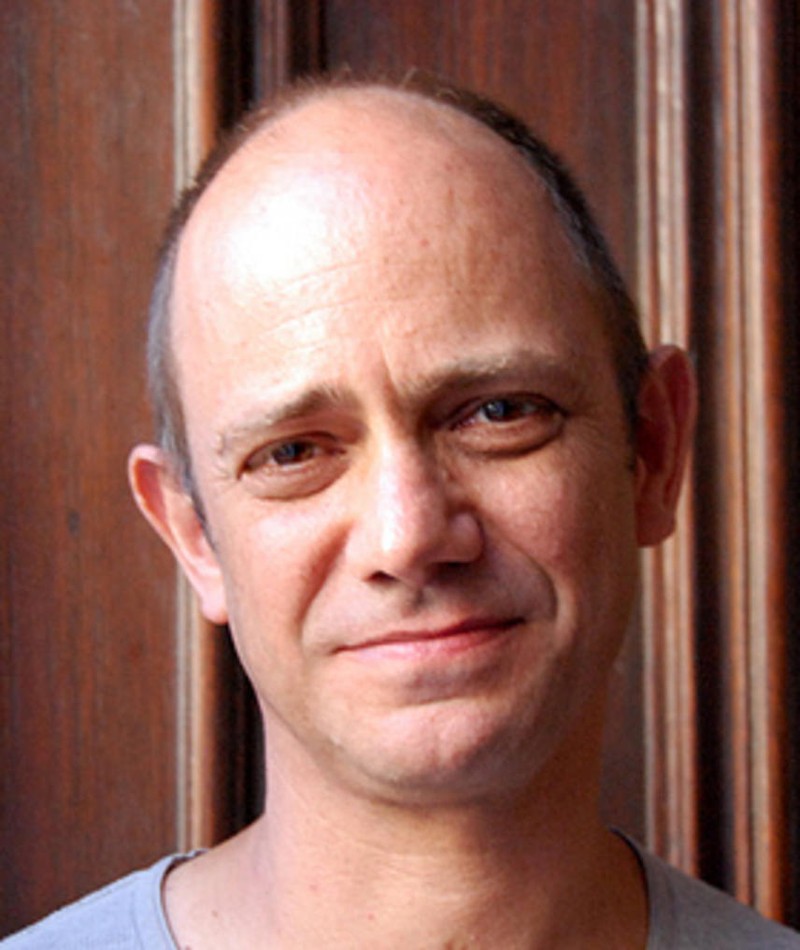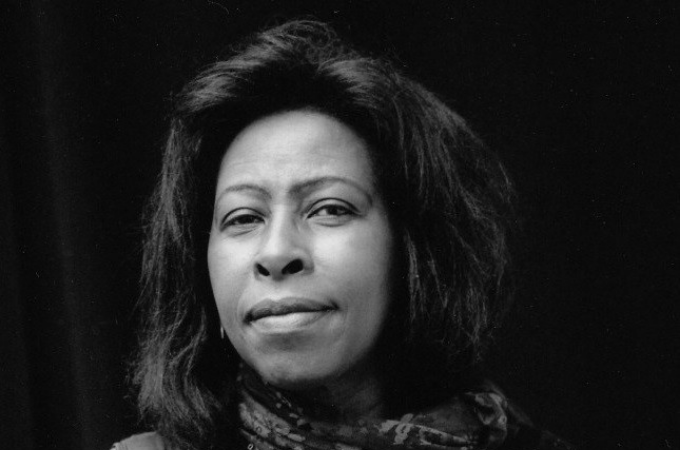Dedicated to classics and hits.
Friday, September 10, 2021
Great Circle (2021) by Maggie Shipstead
Posted by
catdirt
at
11:28 AM
0
comments
![]()
Labels: 2020s literature, American Literature, book review
Wednesday, September 08, 2021
The Promise (2021) by Damon Galgut
 |
| South African writer Damon Galgut, will the third time be a charm for the Booker prize. |
Posted by
catdirt
at
6:10 PM
0
comments
![]()
Labels: 2020s literature, African Literature, book review, new release
Boy in the Field (2020) by Margot Livesey
Posted by
catdirt
at
5:45 PM
0
comments
![]()
Labels: 2020s literature, book review, English Literature
Birth of a Bridge (2010) by Maylis de Kerangal
Posted by
catdirt
at
5:02 PM
0
comments
![]()
Labels: 2010s literature, book review, French Literature
To Walk Alone in a Crowd (2021)by Antonio Munoz Molina
A great step forward will take place when different routes are juxtaposed. From 1846 to 1849, Poe, Whitman, and Melville are all living, working, and walking simultaneously through New York City, orbiting around a small number of magnetic poles: a particular bookstore, the offices of a handful of literary journals, the houses of a few cultured people that hold soirees.
There is a kind of invisibility to Herman Melville, as if lost or perpetually estranged among the people walking down the street with him, or in the smaller sphere of his literary circles, the bookstores and cafés. Walt Whitman, who was his exact contemporary, must have crossed paths with him. When Melville’s first book was published Whitman wrote a favorable review in a Brooklyn paper. Melville was a reader of Poe, and both frequented the same bookstore in New York, whose owner they knew well. But they never met, or if they ran into each other now and then, to the point of becoming familiar strangers, we will never know it. Melville walked quickly, in long strides. He said Broadway was a Mississippi flowing through Manhattan. During a trip to London in 1850 he spent his days exploring alleyways and courtyards, bookstores, theaters, cafés, dubious streets he would have avoided in other people’s company, where women stood at the corners offering themselves under the gaslight.
YOU CHOOSE WHAT YOU WANT AND WHEN YOU WANT IT. I want to live like this, unencumbered, taking walks, reading books, carrying a backpack with notebooks and pencils, wearing a pair of sturdy hiking boots that give a slight elastic impulse to my heels and to the muscles in my legs, the head of the femur sliding in the hip socket, the strength of the hip, an ancient bone, the base on which the spinal column rests. I want to live on foot, by hand, by pencil, at ease, responsive to whatever I meet, loose like the air that moves around my body as I walk or like a graceful swimming stroke. I want to remain astonished.
Posted by
catdirt
at
2:12 PM
0
comments
![]()
Labels: 2020s literature, book review, European Literature, new release
What Strange Paradise (2021) by Omar Akkad
Posted by
catdirt
at
1:43 PM
0
comments
![]()
Labels: 2020s literature, Audiobook, book review, European Literature, new release
The Council of Animals (2021) by Nick McDonell
Posted by
catdirt
at
11:52 AM
0
comments
![]()
Labels: 2020s literature, American Literature, Audiobook, book review, new release
Black Mamba Boy (2010) by Nadifa Mohamed
Posted by
catdirt
at
11:35 AM
0
comments
![]()
Labels: 2010s literature, African Literature, book review
Our Lady of the Nile (2012) by Scholastique Mukasonga
 |
| French-Rwandan author Scholastique Muksonga |
Posted by
catdirt
at
11:26 AM
0
comments
![]()
Labels: 2010s literature, African Literature, book review
Blog Archive
-
►
2024
(104)
- ► 04/14 - 04/21 (3)
- ► 04/07 - 04/14 (9)
- ► 03/31 - 04/07 (9)
- ► 03/24 - 03/31 (8)
- ► 03/17 - 03/24 (6)
- ► 03/10 - 03/17 (8)
- ► 03/03 - 03/10 (9)
- ► 02/25 - 03/03 (8)
- ► 02/18 - 02/25 (7)
- ► 02/11 - 02/18 (6)
- ► 02/04 - 02/11 (6)
- ► 01/28 - 02/04 (5)
- ► 01/21 - 01/28 (5)
- ► 01/14 - 01/21 (9)
- ► 01/07 - 01/14 (6)
-
►
2023
(209)
- ► 12/31 - 01/07 (2)
- ► 12/24 - 12/31 (1)
- ► 12/17 - 12/24 (11)
- ► 12/10 - 12/17 (6)
- ► 12/03 - 12/10 (5)
- ► 11/26 - 12/03 (7)
- ► 11/19 - 11/26 (5)
- ► 11/12 - 11/19 (1)
- ► 11/05 - 11/12 (2)
- ► 10/29 - 11/05 (2)
- ► 10/22 - 10/29 (1)
- ► 10/15 - 10/22 (3)
- ► 10/01 - 10/08 (3)
- ► 09/24 - 10/01 (5)
- ► 09/17 - 09/24 (10)
- ► 09/10 - 09/17 (8)
- ► 09/03 - 09/10 (2)
- ► 08/27 - 09/03 (6)
- ► 08/20 - 08/27 (5)
- ► 08/13 - 08/20 (3)
- ► 08/06 - 08/13 (9)
- ► 07/30 - 08/06 (4)
- ► 07/23 - 07/30 (8)
- ► 07/16 - 07/23 (2)
- ► 07/09 - 07/16 (6)
- ► 07/02 - 07/09 (5)
- ► 06/18 - 06/25 (1)
- ► 06/11 - 06/18 (3)
- ► 06/04 - 06/11 (2)
- ► 05/28 - 06/04 (6)
- ► 05/14 - 05/21 (2)
- ► 04/30 - 05/07 (2)
- ► 04/23 - 04/30 (3)
- ► 04/16 - 04/23 (1)
- ► 04/09 - 04/16 (5)
- ► 04/02 - 04/09 (3)
- ► 03/26 - 04/02 (4)
- ► 03/19 - 03/26 (6)
- ► 03/12 - 03/19 (4)
- ► 03/05 - 03/12 (8)
- ► 02/26 - 03/05 (5)
- ► 02/19 - 02/26 (3)
- ► 02/12 - 02/19 (8)
- ► 02/05 - 02/12 (5)
- ► 01/29 - 02/05 (5)
- ► 01/22 - 01/29 (5)
- ► 01/15 - 01/22 (6)
-
►
2022
(68)
- ► 10/09 - 10/16 (1)
- ► 10/02 - 10/09 (1)
- ► 08/07 - 08/14 (3)
- ► 07/31 - 08/07 (2)
- ► 06/05 - 06/12 (5)
- ► 05/29 - 06/05 (16)
- ► 05/22 - 05/29 (2)
- ► 04/24 - 05/01 (2)
- ► 04/17 - 04/24 (1)
- ► 04/10 - 04/17 (4)
- ► 04/03 - 04/10 (7)
- ► 03/27 - 04/03 (1)
- ► 03/13 - 03/20 (1)
- ► 03/06 - 03/13 (2)
- ► 02/27 - 03/06 (1)
- ► 02/06 - 02/13 (4)
- ► 01/30 - 02/06 (3)
- ► 01/23 - 01/30 (3)
- ► 01/16 - 01/23 (2)
- ► 01/09 - 01/16 (4)
- ► 01/02 - 01/09 (3)
-
▼
2021
(67)
- ► 12/19 - 12/26 (3)
- ► 11/28 - 12/05 (3)
- ► 11/21 - 11/28 (3)
- ► 11/14 - 11/21 (8)
- ► 11/07 - 11/14 (4)
- ► 10/17 - 10/24 (3)
- ► 10/10 - 10/17 (4)
- ► 10/03 - 10/10 (3)
- ► 09/26 - 10/03 (7)
- ► 09/19 - 09/26 (2)
- ► 09/12 - 09/19 (1)
-
▼
09/05 - 09/12
(9)
- Great Circle (2021) by Maggie Shipstead
- The Promise (2021) by Damon Galgut
- Boy in the Field (2020) by Margot Livesey
- Birth of a Bridge (2010) by Maylis de Kerangal
- To Walk Alone in a Crowd (2021)by Antonio Munoz Mo...
- What Strange Paradise (2021) by Omar Akkad
- The Council of Animals (2021) by Nick McDonell
- Black Mamba Boy (2010) by Nadifa Mohamed
- Our Lady of the Nile (2012) by Scholastique Mukasonga
- ► 08/08 - 08/15 (2)
- ► 08/01 - 08/08 (1)
- ► 07/25 - 08/01 (1)
- ► 07/18 - 07/25 (3)
- ► 07/11 - 07/18 (4)
- ► 02/21 - 02/28 (1)
- ► 01/31 - 02/07 (1)
- ► 01/17 - 01/24 (1)
- ► 01/10 - 01/17 (3)
-
►
2020
(28)
- ► 11/08 - 11/15 (1)
- ► 10/25 - 11/01 (1)
- ► 10/11 - 10/18 (1)
- ► 09/06 - 09/13 (1)
- ► 08/23 - 08/30 (1)
- ► 07/19 - 07/26 (2)
- ► 07/12 - 07/19 (3)
- ► 06/28 - 07/05 (1)
- ► 06/21 - 06/28 (1)
- ► 06/14 - 06/21 (1)
- ► 06/07 - 06/14 (1)
- ► 05/31 - 06/07 (1)
- ► 05/24 - 05/31 (2)
- ► 05/17 - 05/24 (1)
- ► 05/10 - 05/17 (1)
- ► 04/19 - 04/26 (1)
- ► 04/12 - 04/19 (2)
- ► 03/29 - 04/05 (1)
- ► 03/22 - 03/29 (1)
- ► 03/15 - 03/22 (1)
- ► 01/26 - 02/02 (1)
- ► 01/12 - 01/19 (2)
-
►
2019
(1)
- ► 04/14 - 04/21 (1)
-
►
2018
(17)
- ► 11/04 - 11/11 (1)
- ► 09/30 - 10/07 (1)
- ► 09/23 - 09/30 (2)
- ► 09/02 - 09/09 (1)
- ► 08/19 - 08/26 (1)
- ► 08/12 - 08/19 (3)
- ► 08/05 - 08/12 (3)
- ► 07/22 - 07/29 (1)
- ► 07/08 - 07/15 (1)
- ► 05/27 - 06/03 (1)
- ► 05/20 - 05/27 (1)
- ► 02/25 - 03/04 (1)
-
►
2017
(7)
- ► 08/06 - 08/13 (1)
- ► 06/25 - 07/02 (1)
- ► 04/30 - 05/07 (1)
- ► 04/23 - 04/30 (1)
- ► 04/09 - 04/16 (1)
- ► 02/26 - 03/05 (1)
- ► 01/08 - 01/15 (1)
-
►
2016
(6)
- ► 05/22 - 05/29 (1)
- ► 05/15 - 05/22 (1)
- ► 04/24 - 05/01 (1)
- ► 04/17 - 04/24 (1)
- ► 04/03 - 04/10 (2)
-
►
2015
(4)
- ► 06/14 - 06/21 (1)
- ► 05/17 - 05/24 (1)
- ► 05/03 - 05/10 (1)
- ► 01/11 - 01/18 (1)
-
►
2014
(2)
- ► 10/19 - 10/26 (1)
- ► 08/31 - 09/07 (1)
-
►
2011
(1)
- ► 04/03 - 04/10 (1)
-
►
2009
(1)
- ► 10/04 - 10/11 (1)
-
►
2008
(1)
- ► 10/05 - 10/12 (1)
-
►
2007
(1)
- ► 06/24 - 07/01 (1)
 Instagram
Instagram